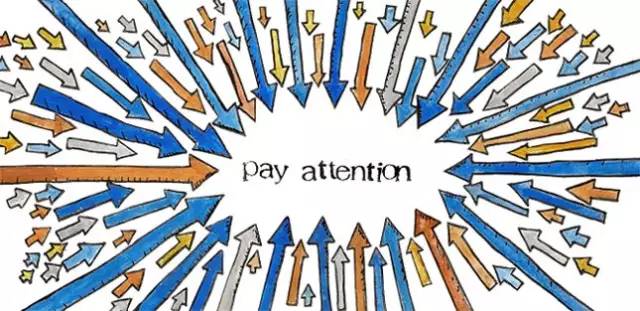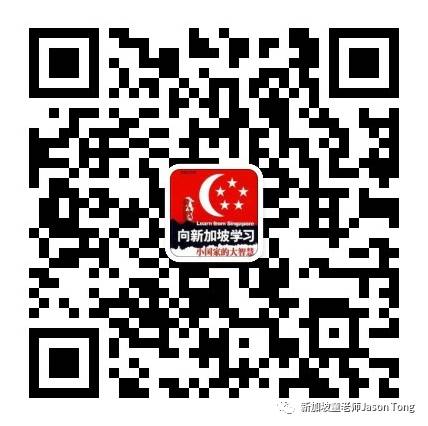長遠來看,個人成功取決于別人注意。如果你的老板都沒有注意到你的工作,你的晉升從何而來?如果你的團隊都沒有注意聽你說話,高效的溝通從何而來?如果你都沒有抓住客戶的注意力,生意成功的勝算又從何而來?
愛德曼的史蒂夫·呂貝爾(Steve Rubel)曾經告訴我:“注意力是別人能夠給你的最爲重要的財富,它比金錢,貨物,財産的價值都高出許多”。
但是卻很少有人發現注意力背後的科學。這也是我花費2年時間做注意力研究的原因。我從1000多個心理學、神經學、經濟學和社會學研究中將它篩選出來,采訪了包括謝莉爾·桑德伯格(Sheryl Sandberg)、史蒂夫·索德伯格(Steven Soderbergh)和大衛·科波菲爾(David Copperfield)在內的多個頂級研究者和引人注意的思想領袖。同時,作爲Mashable(互聯網新聞博客)的合作編輯和風險投資人,我也從和初創公司打交道的多年經驗中獲得不少啓發。
七招引爆注意力
1找到注意力的自動按鈕
如果有人開槍,你一定會回頭看;如果一個身著紅裙的姑娘想搭便車,她很有可能獲得成功。如此感性化的細小線索會自動地引導人們的注意力。我們身體的這套安全生存機制反應的可比我們的大腦要快更多。當然,這並不是建議你講話更大聲,或是嘗試身著囚服到處晃悠;而是要需找到一些更加微妙的按鈕刺激人們的注意本能。比如說給你的目標客戶送上一杯熱茶或者咖啡。科學雜志上曾經發表過一個研究說身體感受到溫暖會使人們更加的友好並且願意交談。
2高度重複打破框架
框架理論說我們對世界的看法是由我們的生理、個人和社交的經驗、偏見等各方面框架塑造而成的。我們只會關注自己想看的,而壓根不會去理會其他。想要以此引發注意力,你可以向你觀衆的框架靠近,或者改變他們的。高度重複是改變別人框架的好方法之一。70年代的一個經典案例發現如果你讓被試者反複聽一個言論,例如杜蘭在超級碗第一場比賽中打敗了哥倫比亞,他們會開始相信這是真的。所以如果你想要深入人心,別怕重複!
3出其不意
我們會對那些澆滅我們期待的事情給予特殊關注。人們對人對事都會産生期待,這種與生俱來的需求敦促我們去發現一件事情到底是預示著危險還是幸運。而在學術圈,違反預期理論告訴我們:一件事情越偏離期待,它反而更令人期待。如果你想獲得老板、客戶和同事的注意力,可以嘗試著從好的方面讓他們感到驚訝:問一些超出預期的問題,先于截止日期完成工作,或是邀請他們一同散個步而不是一起去喝個咖啡。
4提供具象化獎勵
許多人相信神經遞質多巴胺是人們感覺到快樂的原因。但密歇根大學的肯特·貝裏奇博士(Dr. Kent Berridge)更願意相信快樂和希望、動力有關。我們欲望的養料是“想要的”食物、性、金錢或者更加內在的獎勵比如自我滿足感和目標感。想要獲得這些東西的願望讓我們對其給予更多的注意力。作爲管理者,你的目標應該是能准確分辨最能吸引你的員工、同事和老板的獎勵,並且把他們具象化。我們可以觸及到、體驗到、甚至是腦補到的獎勵都會影響我們的注意力。如果你准備在一個大項目完成之後獎勵你的團隊一頓大餐,不要只是通知他們,發給他們美食圖片,讓他們早早就開始垂涎三尺。
5聲望就是一切
在消費者最相信的發言人排行榜上,專家遠遠高于CEO和名人。這是有科學依據的。2009年,埃默裏大學神經經濟學家格雷格·伯恩斯(Greg Berns)研究發現:當我們從一個專家那裏收到建議時,我們大腦的決策中心會減慢甚至停止工作。這被羅伯特·西德尼博士(Dr. Robert Cialdini)稱爲“導演性順從”。特別是如果你想要獲得陌生人的注意力,先用自身資質獲得主導,表明你的專長,提及一些相關領域的知名人士或者引用一些相關領域的知名言論。
6未完成,所以期待
你有沒有想過我們爲什麽能廢寢忘食的閱讀一本好書,或是觀看一部像《迷失》那樣的美劇?前蘇聯心理學家布魯馬·蔡加尼克(Bluma Zeigarnik)的“蔡氏效應”(the Zeigarnik effect)給出的解釋是:我們的記憶力會傾向于記住那些未完的故事和任務。我們還討厭不確定性,總是想法設法地降低它。利用好這一點,也能幫你獲得注意力。設想一下你即將見到一個潛在客戶,並且想要再次跟他交談。告訴他一個的故事,或者讓他給你講個故事,你承諾一個聽完故事的小任務。他對完整度的強迫性追求會在潛意識裏一直困擾他直到故事結束。這就也意味著,在這一段時間裏你獲得了他的注意力。
7營造認同感
《中介化:媒體如何建構你的世界和生活方式》(Mediated)的作者媒介人類學家托馬斯·德·曾戈提塔博士(Dr. Thomas de Zengotita)認爲認可度需求是人類最重要的需求之一。我們渴望被別人認可和認同。他說:“所有的哺乳動物都需要注意力,只有人類還需要被認可。”其中關鍵是歸屬感,人類需要覺得自己是某個集體的一員並且被這個集體所關愛。給你想要獲得其注意力的人這種感受,他們一定會有所回報。
最有效率的員工、經理和高管們就是那一小撮能利用這7個注意力引爆按鈕讓自己的想法、項目和團隊鶴立雞群的人。理解注意力的科學是在這個信息龐雜的時代獲得成功的首要必備條件。
7 Ways to Capture Someone’s Attention
Your long-term success depends on winning the attention of others. If your boss doesn’t notice your work, how will you get a promotion? If your team doesn’t listen to you, how can you lead effectively? And if you can’t capture the attention of clients, how does your business or career survive?
“Attention is the most important currency that anybody can give you,” Steve Rubel of Edelman once told me. “It’s worth more than money, possessions or things.”
But very few people know the science behind captivating others. That’s why I spent two years researching the subject for my new book. I sifted through more than 1,000 psychology, neurology, economics, and sociology studies. I interviewed dozens of leading researchers and attention-grabbing thought leaders, including Sheryl Sandberg, Steven Soderbergh, and David Copperfield, just to name a few. And I drew on my years of experience with startups, both as co-Editor of Mashable and a venture capitalist.
I learned that there are seven triggers that call people to attention:
Automaticity. If somebody fires a gun in the air, you’re going to turn your head. If a female hitchhiker wears red, she’s more likely to get picked up. Sensory cues like these to direct our attention automatically. It’s a safety and survival mechanism that helps us react faster than our brains can think. I’m not suggesting you speak louder than everyone else and always wear crimson dresses or socks. But think about more subtle ways to play on people’s instincts to capture attention. For example, try giving a star prospect or client a hot cup of coffee or tea. One study published in Science found that exposure to that kind of warmth made them more giving and friendly.
Framing. Our view of the world is shaped by our biological, social, and personal experiences and biases. These frames of reference lead us to embrace and pay attention to some ideas and to ignore others entirely. To leverage this trigger, you have to either adapt to your audience’s frame or change it. One technique you might use to achieve the latter is repetition. A classic study from the 1970s found that if you expose subjects to the same statement (e.g. “Tulane defeated Columbia in the first Sugar Bowl game.”) repeatedly, they will start to believe it is true. So don’t be afraid to repeat a message if you want it to sink in.
Disruption. We pay special attention to anything that violates our expectations. This is because we have an innate need to figure out whether the incident signals a threat or a positive development. In academic circles, this is known as expectancy violations theory. The more disruptive something is, the more interesting it becomes. To get the attention of your bosses, clients and colleagues, try surprising them in a positive way: ask an unexpected question, beat a tough deadline, invite them for a walk instead of a coffee.
Reward. Many people believe the neurotransmitter dopamine causes us to feel pleasure. But, according to Dr. Kent Berridge of the University of Michigan, it is much more aligned with anticipation and motivation. It fuels our desire to “want” food, sex, money or more intrinsic rewards like self-satisfaction and a sense of purpose. The prospect of capturing these things makes us pay attention. Your goal as a manager should be to identify the incentives that most appeal to your employees, colleagues and bosses and to make them more visceral in their minds. Rewards we can touch, experience, or even just visualize have a greater impact on our attention. For example, when you’re offering your team an off-site retreat at the end of a big project, don’t just tell them about it – send them pictures and make them salivate.
Reputation. Consumers consistently rate experts as the most trusted spokespeople, more than CEOs or celebrities. There’s a scientific reason for this: in a 2009 study, Emory University neuroeconomist Greg Berns found that the decision-making centers of our brains slow or even shut down while we are receiving advice from an expert. This is a phenomenon Dr. Robert Cialdini calls “directed deference.” So, especially if you’re trying to capture the attention of people who don’t know you, feel free to lead with your credentials, establish your expertise and cite others who are most knowledgeable on the topic at hand.
Mystery. Ever wonder why we’re unable to put down a good book or stop binge-watching shows like Lost? Our memory is fine-tuned to remember incomplete stories and tasks. There’s actually a scientific term for this: the Zeigarnik effect, named after the Soviet psychologist who discovered it. We also dislike uncertainty and will actively try to reduce it by any means possible, and you can use this to your advantage. Say you’re meeting with a prospective client or recruit, and you’d like her to come back for a second meeting. Tell her a story or assign yourself a task that you’ll complete when she does. Her compulsion for completion will nag at her, which means you’ve got her attention.
Acknowledgement. Dr. Thomas de Zengotita, a media anthropologist and author ofMediated, believes that acknowledgement – our need for validation and empathy from others – is one of our most vital needs. “All mammals want attention,” he told me. “Only human beings need acknowledgment.” Key to this is a sense of belonging to a community that cares about us. Create that feeling for anyone whose attention you’d like to capture, and they’ll repay you.
The most effective employees, managers, and executives are the ones who use these seven triggers to shine a spotlight on their ideas, projects, and teams. Understanding the science of attention is a prerequisite to success in the information age.
我們爲讀者提供各類資訊外,也爲大家提供各類新加坡留學等資訊,及如何在新加坡中英文業余學習(課程可申請政府津貼),中英文教學會計ACCA課程,精品雅思班,提升學曆等
我們還專設馬來西亞碧桂園–森林城市一日遊和澳洲留學業務
歡迎電話:84258441,添加微信:jasonjuven
童老師
掃二維碼關注我的文章
推薦閱讀:


